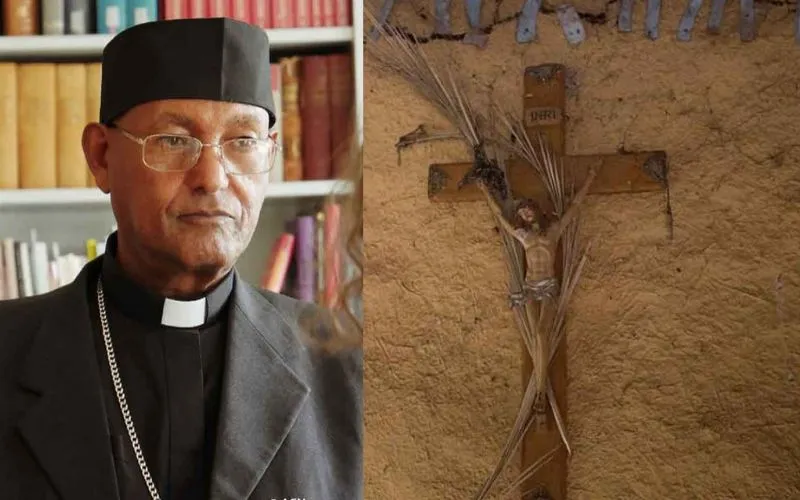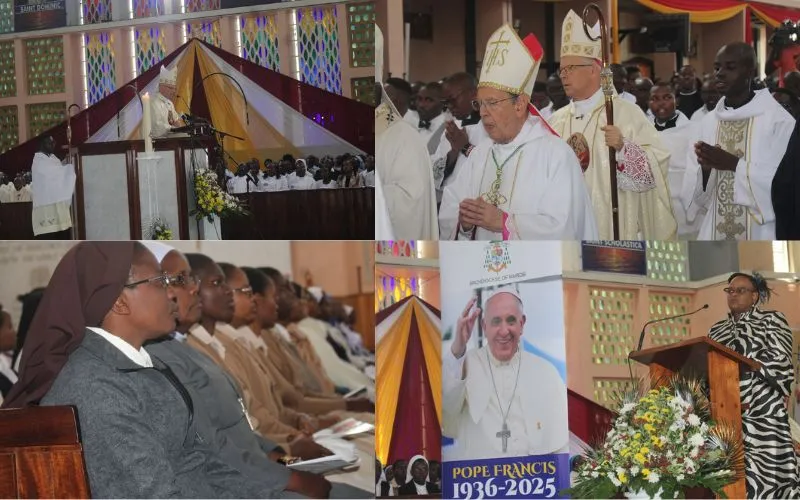Reflecting on the impact of the war on Adigrat Eparchy, Bishop Medhin says, “In the currently accessible regions of my Diocese the Church has suffered some 37 million euros of material damage. Yet the damage to human life and the psychological effects of the atrocities committed are immeasurable.”
ACN reports that in Tigray’s occupied regions, the schools remain closed, and the children have not received any formal education for four years.
In the ACN report, Bishop Medhin says that where he is based, there are still more than 50,000 displaced people, who have been unable to return to their homeland.
Freedom of movement is generally still very curtailed, because the streets are still unsafe, he says, and explains that thousands of people continue to die through violence, food shortages and a lack of basic care.
“How can the world simply look on?” he laments.
(Story continues below)
“I have the greatest appreciation for my colleagues in pastoral service,” he says, noting that because of the dangers, non-governmental organizations (NGOs) left the country in the middle of the conflict.
It is only women and men Religious, including more than 30 missionaries from overseas – and Diocesan Priests who did not run away, Bishop Medhin says, adding, “They stayed there, serving the people of Tigray.”
The dozens of missionaries, he says, “gave a perfect example of the ‘Suffering Servant’ from the Book of Isaiah, who gave his life for the salvation of others.”
In the July 24 report, ACN says that since the end of the war, the Diocese of Adigrat has been able to carry out projects for trauma healing for the countless people who have been maimed and disabled by explosions, and for all those unable to process the atrocities, which they experienced or witnessed.
According to Bishop Medhin, overcoming experiences is impossible without facing up to what has happened, and can hardly be done without considering the spiritual dimension.
“Our trauma healing programmes are Bible-based, because in my opinion trauma healing is not complete without faith,” the 71-year-old Catholic Church leader is quoted as saying in the report in which ACN says that in the future, it wants to support his Episcopal See with further trauma healing projects.
ACI Africa was founded in 2019. We provide free, up-to-the-minute news affecting the Catholic Church in Africa, giving particular emphasis to the words of the Holy Father and happenings of the Holy See, to any person with access to the internet. ACI Africa is proud to offer free access to its news items to Catholic dioceses, parishes, and websites, in order to increase awareness of the activities of the universal Church and to foster a sense of Catholic thought and culture in the life of every Catholic.








